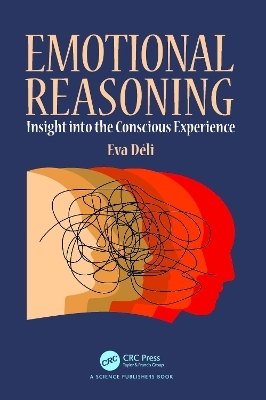
Emotional Reasoning
CRC Press (Verlag)
978-1-032-54447-2 (ISBN)
Neuroscience has made significant progress in understanding the brain, but the nature of consciousness remains elusive. At the same time, recent spectacular advancements in artificial intelligence promise the prospect of machines attaining human-like cognitive abilities. At the center of both systems is a fundamental dance of stimuli and response, requiring a profound comprehension of the physical environment. Thus, quantum mechanics and general relativity can be applied to the mysteries of human behavior, such as the difficulty of predicting, controlling, or retracing our thoughts. This landmark book explores the nature of consciousness through the lens of physics rather than neuroscience.
Physics has been an explanatory force in diverse phenomena, and it can offer an entirely new vision of consciousness as an irreducible entity, similar to particles, the fundamental units of energy or matter. The fermionic mind hypothesis emerges as a tour-de-force synthesis and framework for understanding consciousness, reimagined as the elemental unit of intellect. It highlights particle organization, a fundamental structure that cannot be understood as the sum of its parts, as the essential analogy between fermions and consciousness.
The book presents an engaging scientific narrative that explores some of humanity's oldest and most challenging questions. What is consciousness? What are emotions? How can a physical brain create subjective experience? Do we have free will? Engaging and penetrating, Emotional Reasoning represents a groundbreaking perspective that will surprise you at every turn. It will enhance your confidence through understanding yourself and your place in the cosmic order. Beyond neuroscience, the book holds profound implications for artificial intelligence research. It reveals the intricate link between consciousness and the physical universe, echoing the philosophical insight of theoretical physicist John Wheeler: "The physical world is, in some deep sense, tied to the human being."
Eva Déli is a Hungarian American neuroscientist with an extensive publication list in peer-reviewed journals. She has worked at leading universities like the University of Minnesota and Emory University. Alongside her scientific pursuits, she has a background in the visual arts, which has been instrumental in her creative ability to combine the latest research in neuroscience with a holistic understanding of physics. Her theory of consciousness, known as the fermionic mind hypothesis, may represent a paradigm shift in neuroscience. According to this hypothesis, consciousness is an organic part of the physical universe governed by the same laws.
Preface. Introduction. The Brain. How the Brain Produces Emotions. The Mind as a Particle. Quantum Cognition. Behavior Regulation. Compromised Performance. Success Boosters. Conclusions. Appendix. References. Index.
| Erscheinungsdatum | 22.08.2024 |
|---|---|
| Zusatzinfo | 3 Tables, black and white; 2 Illustrations, color; 32 Illustrations, black and white |
| Verlagsort | London |
| Sprache | englisch |
| Maße | 156 x 234 mm |
| Themenwelt | Geisteswissenschaften ► Psychologie ► Allgemeine Psychologie |
| Geisteswissenschaften ► Psychologie ► Verhaltenstherapie | |
| Medizin / Pharmazie ► Medizinische Fachgebiete ► Neurologie | |
| Naturwissenschaften ► Biologie ► Humanbiologie | |
| Naturwissenschaften ► Biologie ► Zoologie | |
| ISBN-10 | 1-032-54447-3 / 1032544473 |
| ISBN-13 | 978-1-032-54447-2 / 9781032544472 |
| Zustand | Neuware |
| Informationen gemäß Produktsicherheitsverordnung (GPSR) | |
| Haben Sie eine Frage zum Produkt? |
aus dem Bereich


